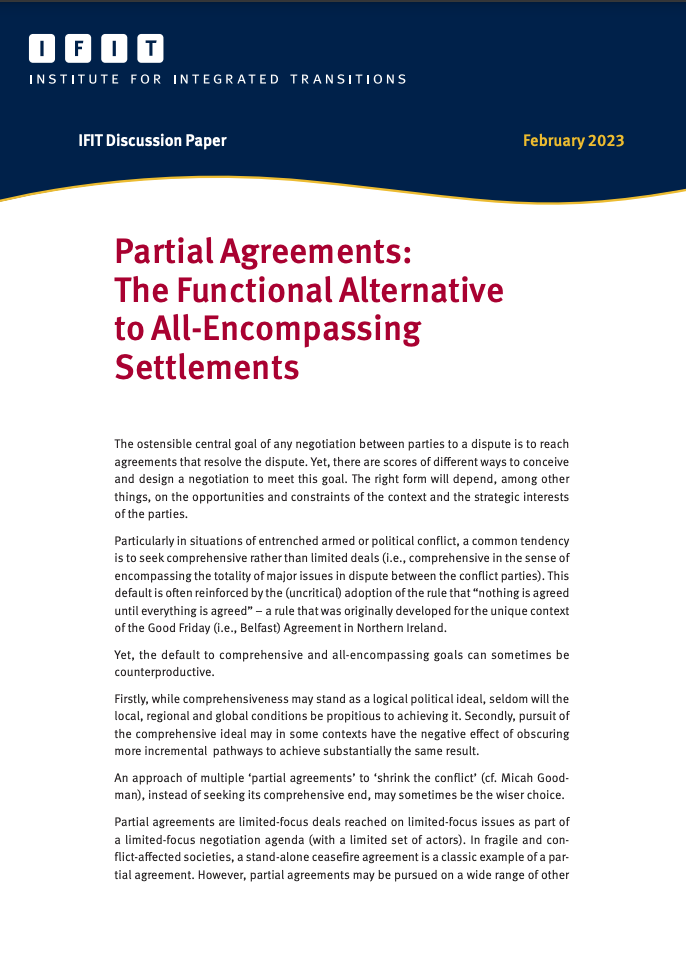Publication
/ Law and Peace
Partial Agreements: The Functional Alternative to All-Encompassing Settlements
In situations of entrenched conflict, a common tendency is to seek comprehensive rather than limited deals. This practice is often reinforced by the uncritical adoption of the rule that “nothing is agreed until everything is agreed”.
Yet, the default to comprehensive and all-encompassing goals can be counterproductive since local, regional and global conditions seldom will be propitious to achieving them. An approach of multiple ‘partial agreements’ to ‘shrink the conflict’, instead of seeking its comprehensive end, may sometimes be the wiser choice.
Against this backdrop, this IFIT publication examines 1) the relevance and potential advantages of partial agreements in situations of armed or political conflict; 2) associated risks and dilemmas – and the means of addressing them; and 3) the range of issues that might be suitable for partial agreements.
The DOI registration ID for this publication is: https://doi.org/10.5281/zenodo.10425177
You may also be interested in
![]()
publication
/ Inclusive Narratives
Media and Narrative: Managing Conflict in Polarised Societies
Available in:
-
English
-
Español
![]()
publication
/ Inclusive Narratives
The Role of Narrative in Managing Conflict and Supporting Peace
Available in:
-
English
-
Español
![]()
publication
/ Inclusive Narratives
Changing the Narrative: The Role of Communications in Transitional Justice
Available in:
-
English
-
Español
-
Français
-
العربية
![]()
publication /
Law and Peace
Negotiating with Criminal Groups: IFIT Guidance Note for Good-Faith Promoters
![]()
publication /
Law and Peace
The Scope for Dialogue with Security Forces in Hybrid Regimes
Available in:
-
Español
![]()
publication /
Law and Peace
Effective Participation in Political and Peace Negotiations
Available in:
-
Español
![]()
publication /
Law and Peace
Negotiating with Violent Criminal Groups: Lessons and Guidelines from Global Practice
Available in:
-
Español
In situations of entrenched conflict, a common tendency is to seek comprehensive rather than limited deals. This practice is often reinforced by the uncritical adoption of the rule that “nothing is agreed until everything is agreed”.
Yet, the default to comprehensive and all-encompassing goals can be counterproductive since local, regional and global conditions seldom will be propitious to achieving them. An approach of multiple ‘partial agreements’ to ‘shrink the conflict’, instead of seeking its comprehensive end, may sometimes be the wiser choice.
Against this backdrop, this IFIT publication examines 1) the relevance and potential advantages of partial agreements in situations of armed or political conflict; 2) associated risks and dilemmas – and the means of addressing them; and 3) the range of issues that might be suitable for partial agreements.
The DOI registration ID for this publication is: https://doi.org/10.5281/zenodo.10425177
You may also be interested in
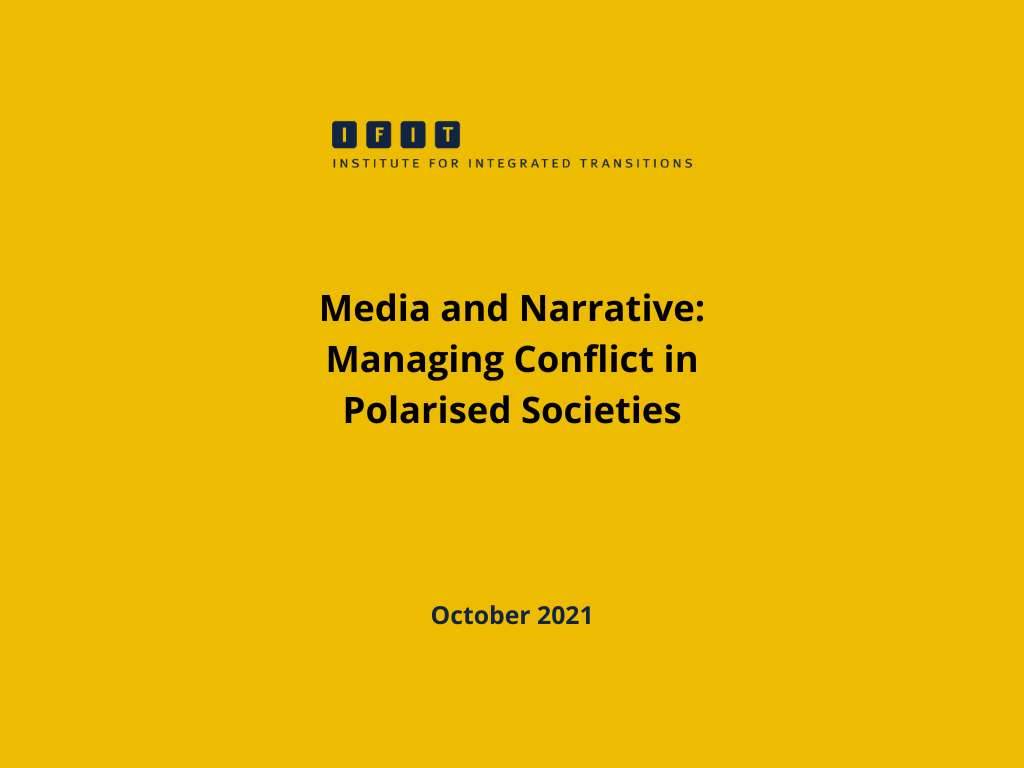
publication / Inclusive Narratives
Media and Narrative: Managing Conflict in Polarised Societies
- English
- Español
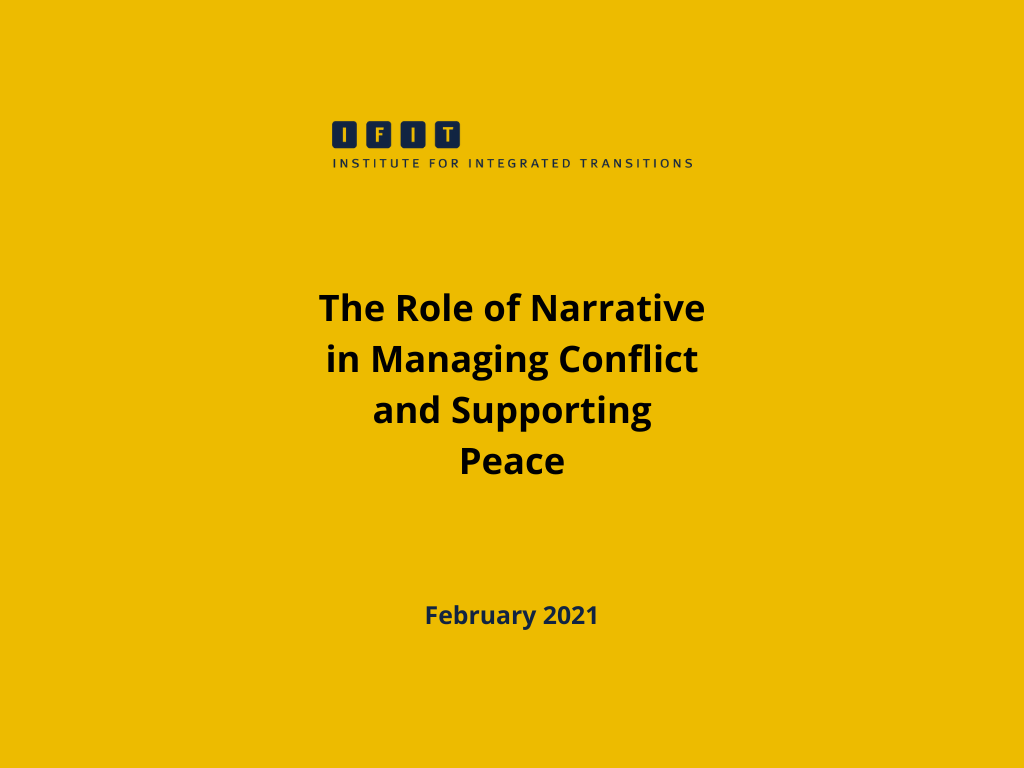
publication / Inclusive Narratives
The Role of Narrative in Managing Conflict and Supporting Peace
- English
- Español

publication / Inclusive Narratives
Changing the Narrative: The Role of Communications in Transitional Justice
- English
- Español
- Français
- العربية
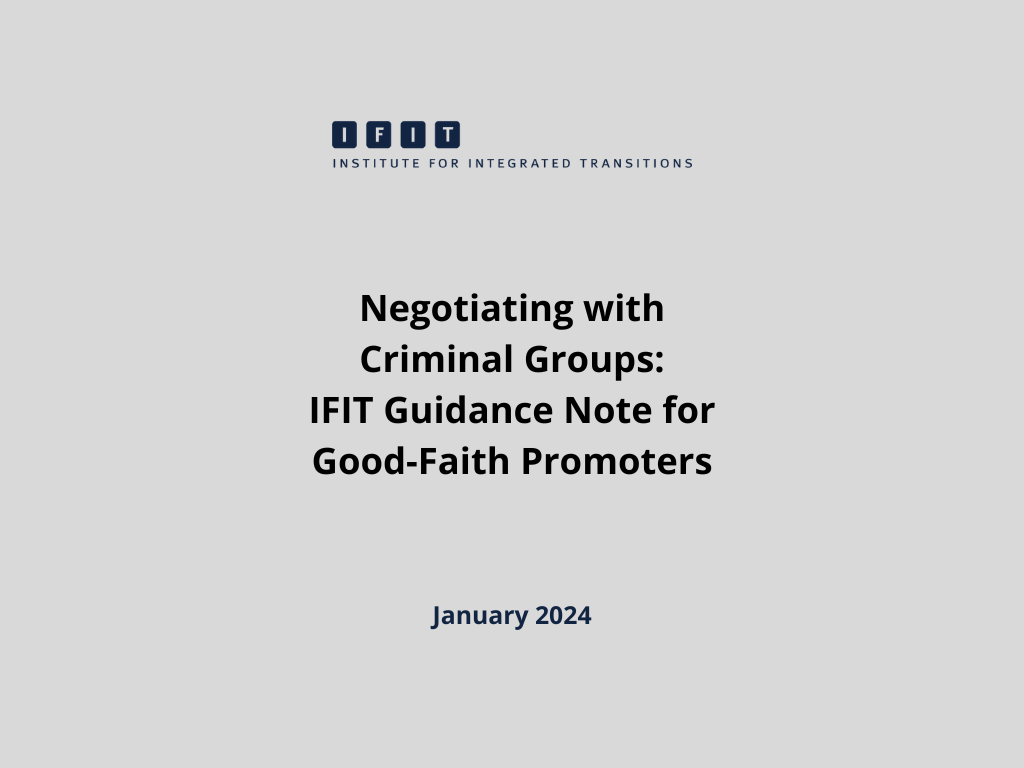
publication / Law and Peace
Negotiating with Criminal Groups: IFIT Guidance Note for Good-Faith Promoters
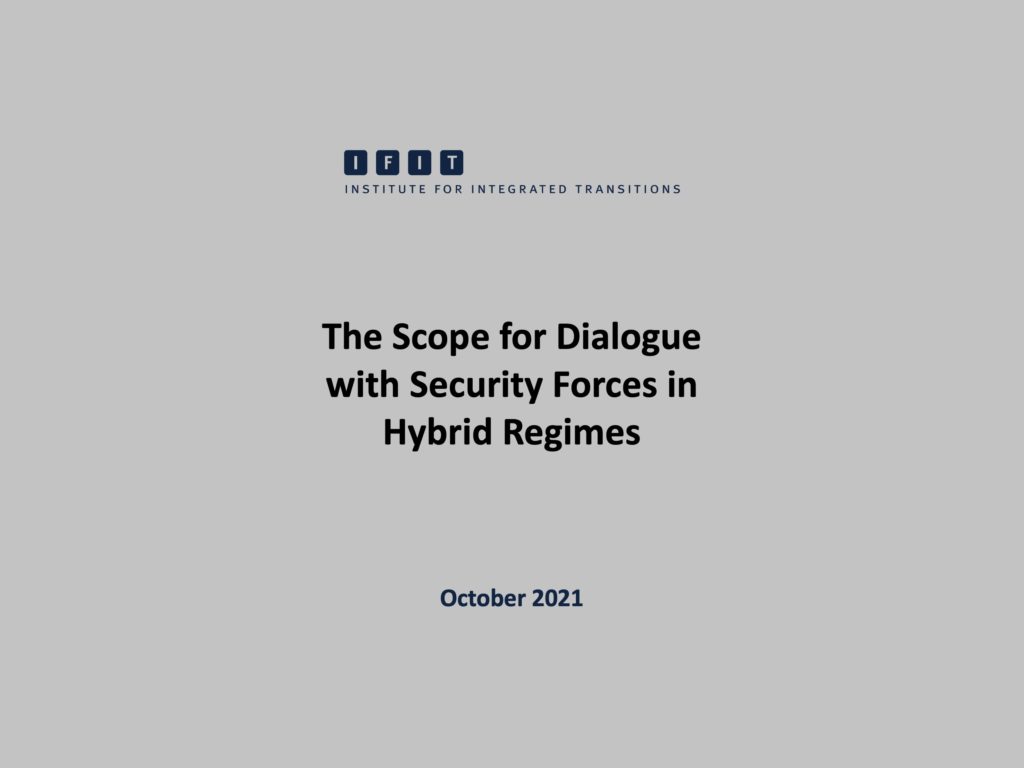
publication / Law and Peace
The Scope for Dialogue with Security Forces in Hybrid Regimes
- Español

publication / Law and Peace
Effective Participation in Political and Peace Negotiations
- Español
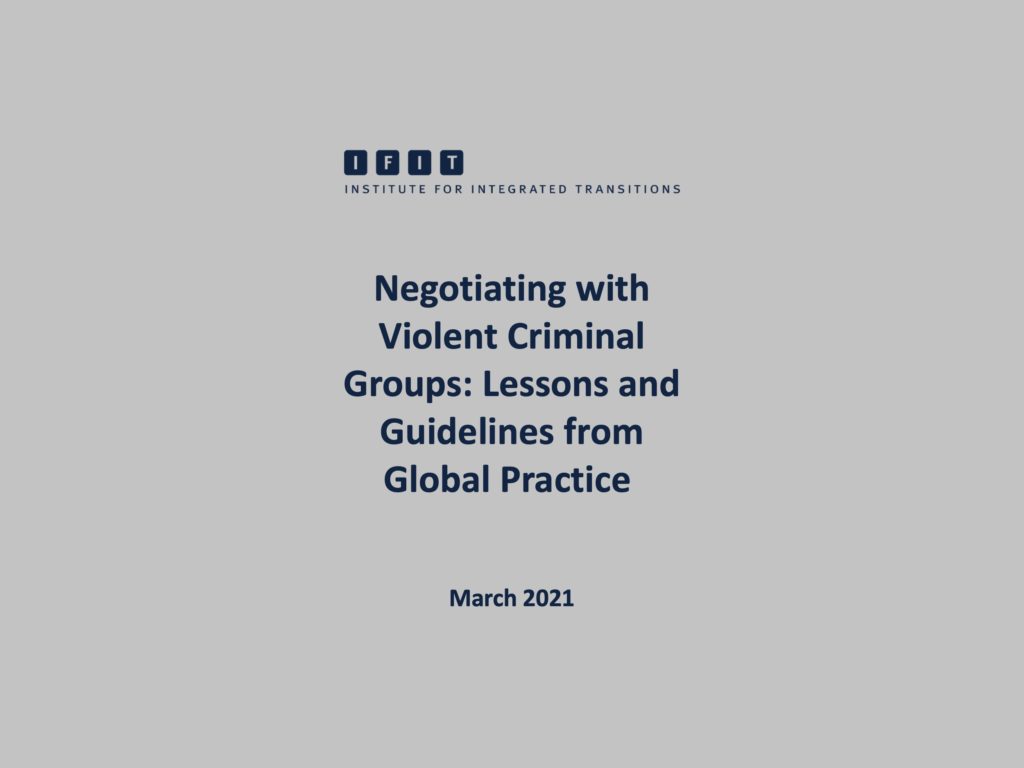
publication / Law and Peace
Negotiating with Violent Criminal Groups: Lessons and Guidelines from Global Practice
- Español


